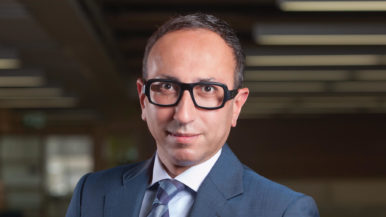Legal File: Video Hits
It is not completely clear how and why the Torys lawyers were able to get away with testifying by means of videotaped depositions. The prosecution talked about their right “not to appear in a foreign court,” but it is difficult to believe that lawyers in a major law firm with international associations could not have been compelled to attend in person if the prosecution had really wanted it. It’s likely the prosecution felt their evidence was better presented via videotape, if for no other reason than there could be no unwanted surprises in cross-examination. Once videotaped, the evidentiary concrete would be hardened and set before the trial began, and there would be no risk of those “foreign” lawyers—whom the prosecutors probably viewed with suspicion to begin with—suddenly answering questions in a way that harmed the prosecution and assisted the accused.
The videotaped depositions also made it easier to deal in advance with evidentiary rulings, such as solicitor-client privilege. The right of the client to keep information given to his lawyer secret becomes problematic in cases of corporate clients, because the individuals running the company, no matter what their position or power, are not the client and not entitled to any privilege except where their actions are those of the company. Questioning corporate counsel about events involving the legal affairs of the company can become a difficult exercise, with constant objections by the defence counsel that information is privileged. Perhaps that’s why the video deposition route was taken: it made it easy to decide such issues in advance, edit the videos, and then simply play them uninterrupted for the jury. Unless the prosecution releases a director’s cut DVD with all the deleted scenes, we will never know if any questions were objected to on grounds of privilege and if any portions were excised.
It’s also not clear whether jurors are more or less impressed by videotaped evidence. It obviously hurts if the witness in person is more likable and credible and impressive, but helps if the opposite is true. It is also not clear whether jurors find it easier to pay attention to a live witness than a virtual one up on a big screen. If jurors assess evidence according to unconscious standards, then videotaped evidence, resembling as it does a television show or a movie, might be held by jurors to a higher standard. Accustomed to seeing television and movie testimony that is complete and somewhat perfect (to Law & Order standards), real-life testimony on a screen may come off as imperfect by comparison, and therefore wanting and less credible to the juror.
In the end, pushing blame onto the Torys lawyers will not be as easy for the accused as the public might think. Lawyers only give advice. They do not tell clients what to do. And the advice they give is based upon the facts as they believe them to be from the client. Following a lawyer’s advice, even if that is what an accused did, is not the “get out of jail free card” that the public might believe.





